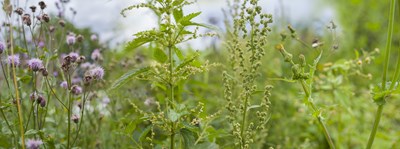RESEARCH CALL - Review of Weed Control options and future opportunities for UK crops
AHDB Cross Sector (Crops) and BBRO
Research and Knowledge Exchange Review
Purpose/Primary Objective
Weed control is a key priority for crop production in many UK crop production systems. The aim of the project is to review weed control research being conducted nationally and internationally on a global scale that would be of benefit to UK crop production in the short, medium and long term.
The review output will be used by AHDB and BBRO to help shape future Research and Knowledge Exchange activities on weed management.
Background
Growers rely almost entirely on synthetic herbicides in order to grow quality produce in a cost-effective manner. Yet the availability and scope for use of pesticides to control weeds in agriculture and horticulture are under pressure from legislation, climate change, the development of resistance in target organisms and market requirements (e.g. reduced pesticide inputs and maximum residue levels).
The review will cover many crops including sugar beet which has a significant role in the crop rotation regarding Integrated Pest Management, biodiversity and soil protection. Additionally, sugar beet weed control plays an important role concerning weed management in the crop rotation and is an environmentally important spring-sown crop. In the near future there are some major changes that will affect weed control in UK sugar beet. These are the potential loss of phenmedipham and desmedipham, the loss of chloridazon, potential loss of a range of graminicides and triflusulfuron-methyl. Sugar beet is very susceptible to weed competition in its early stages of growth and, if uncontrolled, weeds can lead to crop failure.
Phenmedipham and desmedipham are crucial for weed control in sugar beet and their removal could make the crop uneconomic to grow. These actives are the backbone of weed control systems in the UK (and the rest of the EU). Without them it is likely that growers will need to be extremely vigilant about the mixes and timings of application that they use. Phenmedipham and desmedipham are used in low dose mixtures with other herbicides to control a spectrum of weeds. Desmedipham is important for use in dry conditions and has also become more important with the loss of and/or reduction of permitted doses of residual herbicides for use in beet. Timing of treatments will also be more critical for those who currently rely on pre-emergence chloridazon to sensitise weeds to post-emergence sprays. The loss of phenmedipham and desmedipham would not only adversely affect sugar production, but also animal feed and bio-energy from sugar beet. Phenmedipham is also used in other crops such as red beet, fodder beet, spinach, chard and strawberries.
ALS tolerant sugar beet is expected to be introduced in the near future but the system’s potential effectiveness in sugar beet without phenmedipham and the longer-term implications for rotational weed control also need examining.
Undoubtedly, non-chemical weed control will have a more important role to play in the future and integrating combinations of mechanical and chemical weed control is advisable where and when possible and is also key for resistance management, but currently mechanical weed control is not a viable alternative. There is a wide range of potential systems being launched at present (heat, lasers, electricity, hot water and foam, steam, mechanical hoeing coupled with weed ID, etc.) and apart from hoeing, all of these have yet to show an ability to work economically in arable crops; hoeing has limitations on wind prone soils, in wet conditions and to control weeds close to the crop.
The BBRO Stakeholder Board has agreed this is a high priority and would like the applicant to undertake a review of possible future scenarios in order to identify short and long-term strategies that need to be developed to ensure weed control in sugar beet remains viable in the future.
As the loss of phenmedipham and desmedipham is so critical for sugar beet production this review should cover the key objectives below, alongside the specific objectives detailed later in this call;
- The decision-making processes and guidance required in the absence of phenmedipham and desmedipham.
- Review of the implications and robustness of the ALS tolerant varieties, especially in the absence of phenmedipham. It should be noted that not all growers will want to adopt this new technology.
- Identify which weeds will be of particular concern if phenmedipham and desmedipham are not re-registered for use in sugar beet to allow alternative weed control strategies to be developed based on where the big challenges could arise.
Please click on the link below for more information:
Deadline for receipt of submissions: 12noon, 12 August 2018




